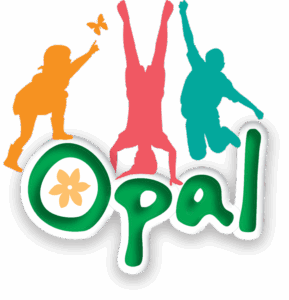OPAL
Home
Our school has been on a journey to improve opportunities for physical activity, socialisation, co-operation, coordination, resilience, creativity, imagination and enjoyment through improved play.
The OPAL Outdoor Play and Learning Programme is the result of 20 years testing and development in over 250 schools and is now used in Canada and New Zealand as well as across the UK.
It is based on the idea that as well as learning through good teaching, your children also learn when they play, and as 20% of their time in school is playtime, we want to make sure that this amount of time (equivalent to 1.4 years of primary school) is as good as possible.
One reason the school is following this programme is that childhood has changed, and many children no longer get their play needs met out of school.
- Average screen time per day 5 hours
- Average outdoor play time per week 5 hours
- Percentage of UK children who only play outdoors with other children at school 56%
Due to our children having SEND, the majority of our children are not able to play outside of their homes and school to develop these skills, which is why we prioritise OPAL as part of the school curriculum, not just at lunchtimes. For more information please click on the link for our Play Policy.
There are many proven benefits for school which carry out the OPAL Programme. They usually include: more enjoyment of school, less teaching time lost to disputes between children, less accidents and greatly improved behaviour.
Play is not messing about. It is the process evolution has come up with to enable children to learn all of the things that cannot be taught, while also feeling like it is fun. There are certain things children must have in order to be able to play. These include.
- Having clothes that you can play in
- Having things to play with
- Having a certain amount of freedom
During our last Ofsted inspection (March 2025) they stated: “The school places high priority on outdoor learning and play. These opportunities support pupils to apply their classroom learning and develop their life skills”.
We have a caravan on site to provide a quiet, dry place for children to read, talk and play table top games, developing their reading, social and turn taking skills.
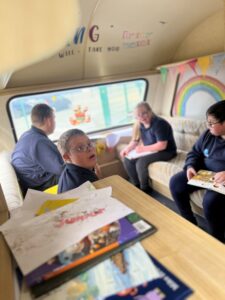
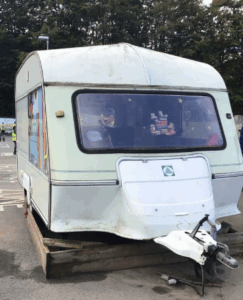
Children have opportunities to ride bikes or play with other wheeled toys. This supports their physical and sensory needs.
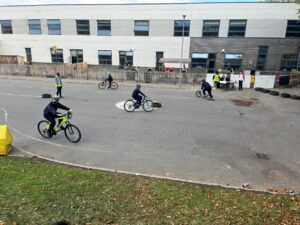
Children work as a team to explore and be creative using loose parts.
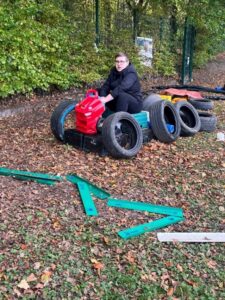
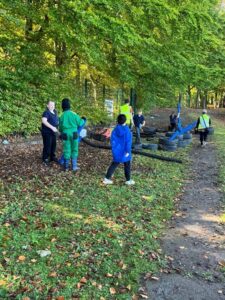
There are opportunities for children to climb and take risks
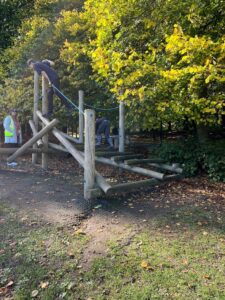
Children have opportunities to perform in our dressing up area, we link this area to seasons and festivals.
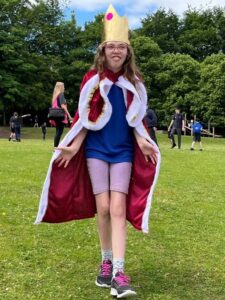
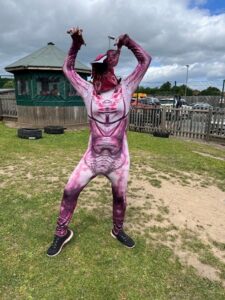
Due to the vast range and complexities of SEND at Durham Trinity, staff have overcome the barriers and challenges of delivering OPAL within an all age generic special school, by reflecting and being creative; asking the question: what does OPAL look like in the different Pathways and how does it meet the needs of our children?

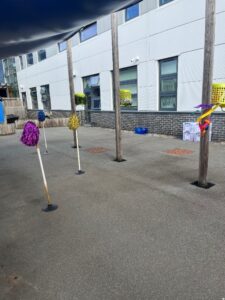
Specialist Autism Pathway Pre-Formal Pathway
We continue to use the grounds throughout the year. Therefore, your young person may get a bit messier, be exposed to more challenges and have greater freedoms to play where, with whom and how they like. The experiences the school is fostering are essential for children’s physical and mental well-being and healthy and in line with all current good practice advice on health safety, well-being and development. In order for children to access OPAL in all weathers we ask that families send in the appropriate clothing (waterproofs, boots/change in footwear), which is part of the school uniform. (link to school uniform policy)
Our next project is a wheelchair accessible roundabout to be positioned in the Pre-formal Pathway. We continue to require fundraising and donations to continue our OPAL development. If you would like more information on how you can support the school, please contact the school office.

